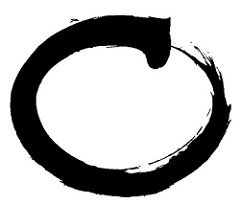Plato ( 428– 348 BCE) was a philosopher in Classical Greece and the founder of the Academy in Athens, the first institution of higher learning in the Western world. He is widely considered the most pivotal figure in the development of philosophy, especially the Western tradition. Unlike nearly all of his philosophical contemporaries, Plato’s entire work is believed to have survived intact for over 2,400 years.
Along with his teacher, Socrates, and his most famous student, Aristotle, Plato laid the very foundations of Western philosophy and science. Alfred North Whitehead once noted: “the safest general characterization of the European philosophical tradition is that it consists of a series of footnotes to Plato.” In addition to being a foundational figure for Western science, philosophy, and mathematics, he has also often been cited as one of the founders of Western religion and spirituality. Friedrich Nietzsche, amongst other scholars, called Christianity, “Platonism for the people.” Plato’s influence on Christian thought is often thought to be mediated by his major influence on Saint Augustine of Hippo, one of the most important philosophers and theologians in the history of Christianity.
Plato was the innovator of the written dialogue and dialectic forms in philosophy, which originate with him. He appears to have been the founder of Western political philosophy, with his Republic, and Laws among other dialogues, providing some of the earliest extant treatments of political questions from a philosophical perspective. His own most decisive philosophical influences are usually thought to have been Socrates, Parmenides, Heraclitus and Pythagoras, although few of his predecessors’ works remain extant and much of what we know about these figures today derives from Plato himself.
The Stanford Encyclopedia of Philosophy describes Plato as “…one of the most dazzling writers in the Western literary tradition and one of the most penetrating, wide-ranging, and influential authors in the history of philosophy. … He was not the first thinker or writer to whom the word “philosopher” should be applied. But he was so self-conscious about how philosophy should be conceived, and what its scope and ambitions properly are, and he so transformed the intellectual currents with which he grappled, that the subject of philosophy, as it is often conceived—a rigorous and systematic examination of ethical, political, metaphysical, and epistemological issues, armed with a distinctive method—can be called his invention. Few other authors in the history of Western philosophy approximate him in depth and range: perhaps only Aristotle (who studied with him), Aquinas and Kant would be generally agreed to be of the same rank.” Wikipedia
plato
A grateful mind is a great mind, which eventually attracts to itself great things.
Any musical innovation is full of danger to the whole State. When modes of music change, the State always changes with them.
At the touch of love, everyone becomes a poet.
Lack of activity destroys the good condition of every human being, while movement & methodical physical exercise save & preserve it.
Life must be lived as play.
Music and rhythm find their way into the secret places of the soul.
Never discourage anyone…who continually makes progress, no matter how slow.
No human thing is of serious importance.
One of the penalties for refusing to participate in politics is that you end up being governed by your inferiors.
The beginning is the most important part of the work.
The direction in which education starts a man will determine his future life.
The measure of a man is what he does with power.
There is no harm in repeating a good thing.
We can easily forgive a child who is afraid of the dark; the real tragedy of life is when men are afraid of the light.
When the mind is thinking, it is talking to itself.
Wise men talk because they have something to say; fools, because they have to say something.
You can discover more about a person in an hour of play than in a year of conversation.
